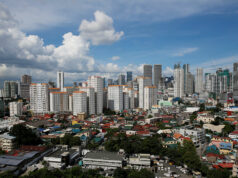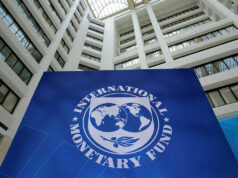OUTSTANDING government debt rose in January as the weaker peso drove up the value of the country’s foreign loans, the Bureau of the Treasury reported late Thursday.
National government debt totalled P6.726 trillion in January, up 1.1% from the end of December. The debt stock also surged by about a 10th from the P6.115 trillion owed in January 2017, data showed.
The bulk of the loans came from domestic sources, totaling P4.431 trillion, down by P10.475 billion from December levels although 12.1% higher year-on-year. Domestic loans fell as obligations were settled at a higher rate than debt issues.
Government securities accounted for most of the debt, while the P948-million remainder comes from direct loans availed of by agencies, as well as assumed obligations.
Foreign debt accounted for roughly a third of the total, up 3.8% month-on-month at P2.295 trillion.
“For January, external debt escalation was principally due to peso depreciation and the impact of third currency appreciation that raised the value of the US dollar and third-currency denominated indebtedness amounting to P61.21 billion and P6.78 billion, respectively,” the Treasury said in a statement.
The government also availed of P16.15 billion in fresh credit from foreign sources, which pushed the total stock 6.2% higher year-on-year.
The Treasury raised $2 billion through a global bond offer in January, with half representing new money and the other $1 billion for liability management.
The peso depreciated in January to P51.341 against the dollar, compared with the P49.958 level seen in December, according to exchange the rate used by the Treasury.
The Philippines held P1.4 trillion worth of debt notes issued to foreign investors, with P1.223 trillion denominated in dollars.
Some P47.034 billion worth of bonds are also held by Japanese investors, while outstanding peso global bonds totalled P129.679 billion. Meanwhile, foreign currency loans hit P895.775 billion, up 5.7% from December.
BSP Deputy Governor Diwa C. Guinigundo said “there is nothing to worry about” when the country’s debt goes up “by a very minimal amount.”
With the growth of the overall debt stock, guaranteed obligations also rose by 2.4% to P489.454 billion.
The government borrows from local and foreign sources to fund its budget deficit, which for this year is capped at 3% of gross domestic product.
This year, economic managers set a 74-26% domestic-foreign borrowing mix with plans to raise P888.227 billion. This ratio raises the share of foreign loans from the previous 80-20% breakdown. — Melissa Luz T. Lopez



